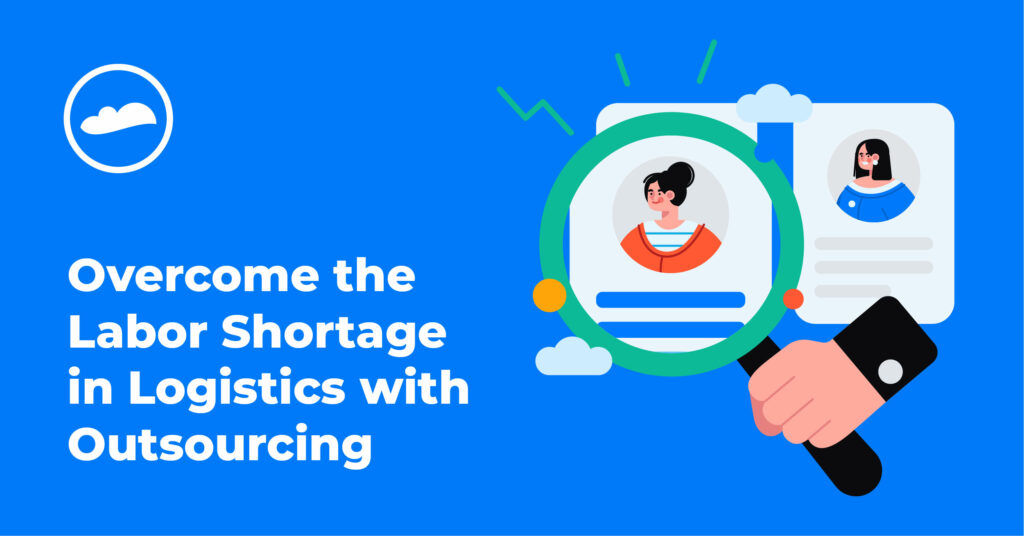In many major countries, unemployment rates are low and the demand for skilled workers is high. Companies are looking to reduce costs as they adjust to current economic conditions, too. Overall, the supply chain and logistics climate is tough to navigate.
While there is indeed a talent shortage in the labor market, there’s also a skill shortage. It’s hard to find skilled workers for your open post and that’s not even mentioning the time and financial investments traditional recruitment requires.
Labor struggles in logistics
There’s immense pressure on logistics and supply chain companies to find trained, reliable staff that can operate pivotable business processes. While many roles are a struggle to fill in the current environment, back office functions are especially vulnerable currently.
Let’s take a look at the current state of play in countries like Australia and the United States. Logistics companies work with temporary staffing agencies and are fighting a battle of retention as a result. Wages are on the rise, breeding a competitive employment landscape where temp workers are looking for better paid jobs. Think of all the time and effort that companies have to put in to skill up workers, just for them to leave soon after!
The appeal of utilizing temp agencies is clear, but only if you’re yet to consider outsourcing.
Outsourcing isn’t just for large companies
Not many small logistics businesses are looking to outsourcing for the back office, at least partially because of hesitation around hiring remote staff for business-critical roles like those in finance. Trust is required for accountants and website managers to succeed, making these traditionally onshore roles so that owners see those managing their finances and online presence daily. Shifting to remote workers can be daunting for these business critical positions.
At Cloudstaff, outsourcing isn’t a matter of sacrificing quality and trust for cost-efficiency and simply filling open roles. It can be just as successful as an onshore equivalent.
The truth about remote work in logistics
Logistics businesses often feel as if they lose control when staff work remotely, whether they’re onshore or offshore. While they could once see exactly what an employee is doing in-person, there’s now an added element of trust-building as part of the working relationship. Measures can be put into place to establish such trust, diminishing the need to worry and the perceived downside to outsourcing.
Using tech to manage remote teams
Here at Cloudstaff, for example, we have an application that helps employees to manage performance, understand what they’re working on, maintain security and integrity of data, and more. Implementing this alongside having a strong company culture of trust from the top-down will pay dividends for your company, no matter where staff are located.
Some logistics businesses have overcome the potential issue of distance by using video conferencing and unified communications tools to talk to a group of workers all at once, as if they’re walking into the office. While remote work is different to the in-person dynamic, it’s simply a matter of using the technology that’s available.
There’s also the concern that outsourced staff aren’t going to be adequate in their role, when in fact they’re one of the remedies to the talent and shortage issues mentioned earlier.
Overseas workers are highly experienced
Our workers in the Philippines, for example, speak English fluently and are highly educated. Back office roles suit them perfectly as they’ve developed skills in accountancy and administration since school. They’re trained before being deployed into a workplace and are essentially hand-picked for the position to ensure a good fit with the businesses we work with.
We want to help you hire the right people. We work with business owners to put together a pool of 2-4 applicants per role, ensuring they have good candidates. From there, we help to manage, develop, and train staff – areas some owners worry about when remote work is in play. There is no sacrifice in quality when working remotely.
90% of large enterprises are already reaping the benefits of building their offshore dream team, and it’s only a matter of time before more smaller logistics businesses get on board too. While it’s currently a major competitive advantage for the earlier adopters, it’s always a smart internal move for its efficiency, cost, and excellent results.
Whether you want to discuss your business requirements or you’re ready to level up with a tailored offshore team, contact us today.

